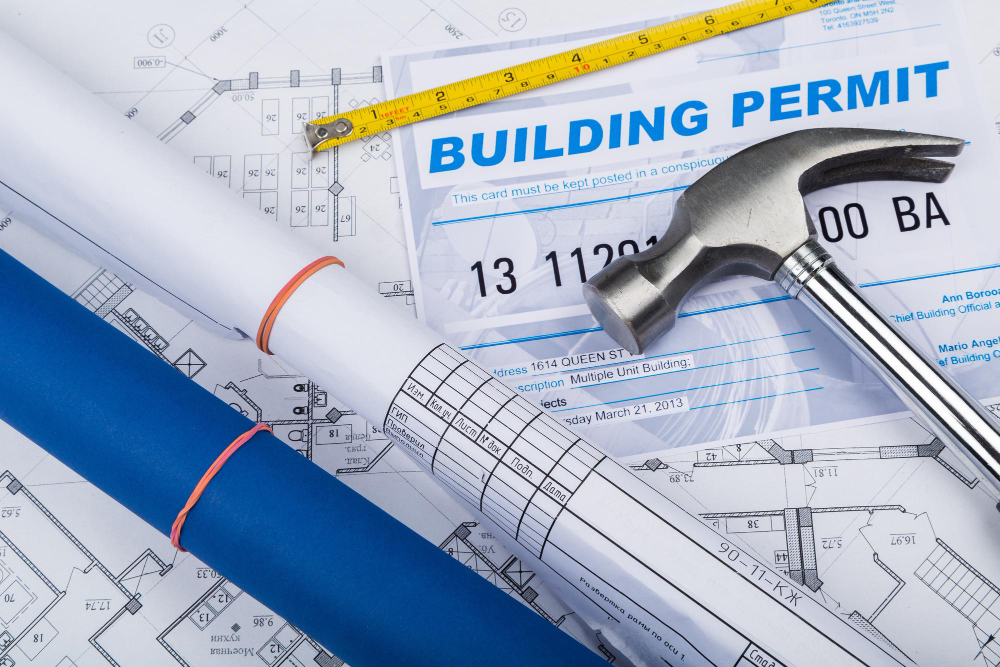Last updated on
Here are the most important eight things you need to know about the construction project permit process. Read on!
Having the right permits in place is an essential part of any construction or renovation project. Permits are required for a variety of reasons, from ensuring safety standards to protecting local wildlife and more.
Understanding the permit process can be confusing, but it’s important to be aware of the steps involved. This article will shed light on what you need to know about the permit process so you can ensure your project goes smoothly.
What's Inside
Building Permit Process

The building permit is one of the more common types of permits. Buildings that are being newly constructed, renovated, or demolished will likely need to pass through this process. Depending on where you live, the specifics of this process can vary from area to area.
Generally speaking, however, you’ll likely have to submit a set of plans and documents which provide details about the project in question. To give a concrete example, if you need a San Jose permit, you’ll likely have to submit a set of plans and documents that are specific to the city. It is also possible that you may need to submit additional information such as energy efficiency forms, which are required in many jurisdictions.
Planning Permission

Planning permission is required for many projects and it is important to be aware of whether or not you need to apply for one. If you are planning any type of development, such as an extension, conversion, or new construction project, for example, then it’s likely that you will need some form of planning permission.
The specifics of the process can vary widely depending on where you live, but in general, it involves submitting a detailed plan or proposal to a local authority which they will assess against certain criteria before deciding on the application. You should contact your local authority for more information on the specifics of their process.
Get the Right Documents

In addition to the permits and planning permission mentioned above, there are certain documents that you may need to apply for specific permissions. For example, if you are applying for a permit to work in a protected wildlife area or conservation area, then you will likely need to provide evidence of an ecological survey.
Similarly, if your project requires excavation works, then you’ll likely need to submit a site investigation report. These documents must be submitted before any work commencing as they can help ensure that the project goes smoothly.
Follow All Deadlines
It is important to be aware of any deadlines associated with your permit applications and ensure that they are met. Depending on where you live, different regulations may apply, so you must research this information ahead of time. It is also possible that extensions may be available if your application is taking longer than usual to process.
There are often fees associated with late applications, so it’s best to make sure that you submit your paperwork promptly. Also, keep in mind that some permits may require multiple applications or additional steps, so make sure to plan and factor this into your timeline.
Inspections

Inspections are often required for certain types of projects and these can sometimes be quite specific. Depending on the type of inspection needed, it may require a specialist surveyor or engineer to visit the site and carry out an assessment to ensure that everything is up to code.
In some cases, such as major construction projects, several inspections may be necessary throughout the project. If any issues are found during the inspection, then they must be addressed before the project can move forward.
It’s important to be aware of the inspection process ahead of time to make sure that your project goes as smoothly as possible.
Be Prepared for Delays
Despite your best efforts, delays can sometimes occur. Depending on the project and where you live, it may take a while for permits to be approved or for inspections to be completed. This is why it’s important to factor this into your timeline and budget accordingly.
It’s also wise to keep a line of communication open with local authorities so that any issues can be addressed quickly. The sooner any problems are addressed, the sooner the project can move forward. Some people may find it helpful to have a lawyer or consultant who is familiar with the permit process, as they can often help navigate any issues that arise.
Do Your Research
You must do your research and understand the permit process for any project you undertake, as we mentioned. This will help ensure that everything runs as smoothly as possible and can save time, money, and stress in the long run.
Make sure to take into account any potential delays or complications that could arise as well as any additional documents or information that may be required, as we also mentioned. If you are ever unsure, your local authority will be able to provide advice and guidance. Still, it is always best to be prepared and do your research beforehand.
Hire a Professional

Finally, if you are ever unsure about the permit process or any other aspect of your project, then hiring a professional is always a wise option. Professionals such as engineers and surveyors can help provide valuable insight into the process and ensure that everything runs smoothly from start to finish.
They can also be especially helpful in ensuring that all deadlines are met and that all documents are submitted correctly. Also, keep in mind that some local authorities may require professional documentation or surveys before they can approve permits. They may also need to inspect the work site to ensure that it is up to code.
By understanding the permit process for your particular project, you can ensure that it runs smoothly and is in line with all relevant regulations. Taking time to familiarize yourself with this process ahead of time can save you a great deal of stress and hassle down the line.
With these useful pieces of information about permit processes, you should now have a clearer sense of what is involved in getting your project approved. Good luck!




